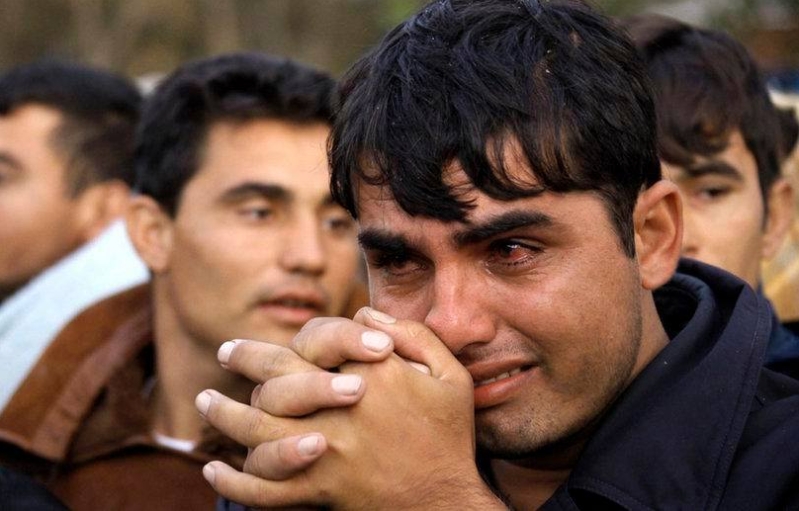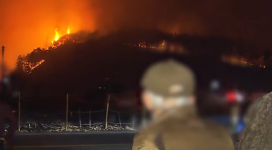
A Muslim extremist yelling the phrase "Allahu akbar [Allah is the greatest]!" slashed the throat of an elderly Christian shop owner in Egypt, instantly killing him because he sold alcohol, a persecution watchdog has revealed.
According to World Watch Monitor, the incident occurred in the Mediterranean city of Alexandria on Tuesday morning. Footage of the murder posted to YouTube shows a man, identified as Youssef Lamei, seated outside his shop smoking before another man calmly approaches him from behind and slashes his throat twice with a knife, killing him.
On Wednesday, a man thought to be the killer, Adel Soliman, 48, was arrested by police while hiding in a building near Al-Montazah police station in the east of the city, according to Al-Ahram news website.
Tony Youssef, the dead man's son, told WWM he had been inside the shop during the attack, along with his brother Peter, another worker named Emad, and two Muslim friends, Mahmoud Eid and Ahmed Sedky.
He said the attacker shouted "Allahu akbar [Allah is the greatest]!" and "Oh, kafirs [unbelievers]!" during the attack in one of Alexandria's busiest commercial roads, Khaled Bin El-Waleed Street.
"We then chased him to catch him, but he wielded his large knife in our face and quickly got into a car that was waiting for him," he added.
Mr. Youssef, a lawyer, said he believed his father's murder was carried out by a "professional" killer. "He took less than half a minute, he knew what he was doing, he stood behind my father, quickly pulled the knife from the folds of his clothes, cut the vein of my father's neck two times with his knife to make sure that the vein was cut, and fled."
He said he believed his father had been targeted "because he was a Christian," as many shops in Alexandria sold alcohol. "There is a shop nearby that sells alcohol and is owned by a Muslim man. Why they didn't kill this man as well?"
"My father was a very kind and respected man and everybody loved him; he had no enemies," he added.
While his father had a licence from the government to sell alcohol and had run the shop for almost 40 years, he had twice been threatened by conservative clerics.
He said that before the beginning of last Ramadan, the month when Muslims fast during daylight hours, some Salafi sheikhs came to the shop and ordered Mr. Lamei to close it for the whole month. His father agreed. "They then asked him not to sell alcohol during the daily five Muslim prayer times; he also obeyed them, to avoid any trouble they might cause," he said.
Egypt is 22nd on Open Door USA's World Watch List of 50 countries where Christians face the most persecution, and sectarian violence against believers has peaked in the south of the country.
In May, the 70-year-old mother of a Christian man accused of having an affair with a Muslim woman was beaten and insulted by the mob before being publicly stripped of her clothes. She was then paraded naked on the streets while the Muslim mob chanted Allahu Akbar, or "God is great."
In June, a Muslim mob in southern Egypt stabbed a Coptic Christian to death over a personal feud and attacked the families of two priests with knives and batons.
In July, group of Muslims attacked and torched houses of Christians in the village of Abu-Yacoub, also in Minya, following a rumor that a Christian intended to turn a kindergarten into a church. Security forces arrested at least 14 people. In another Minya village, Kom al-Lufi, a group of hard-liners attacked and torched houses of Christians after a similar rumor.
In December, a deadly suicide bombing carried out by a Muslim extremist at St. Peter and St. Paul's Church in Cairo left 24 Christians dead and 49 others injured.
In light of such attacks, some have criticized the Egyptian government for not doing enough to protect religious minority communities.







